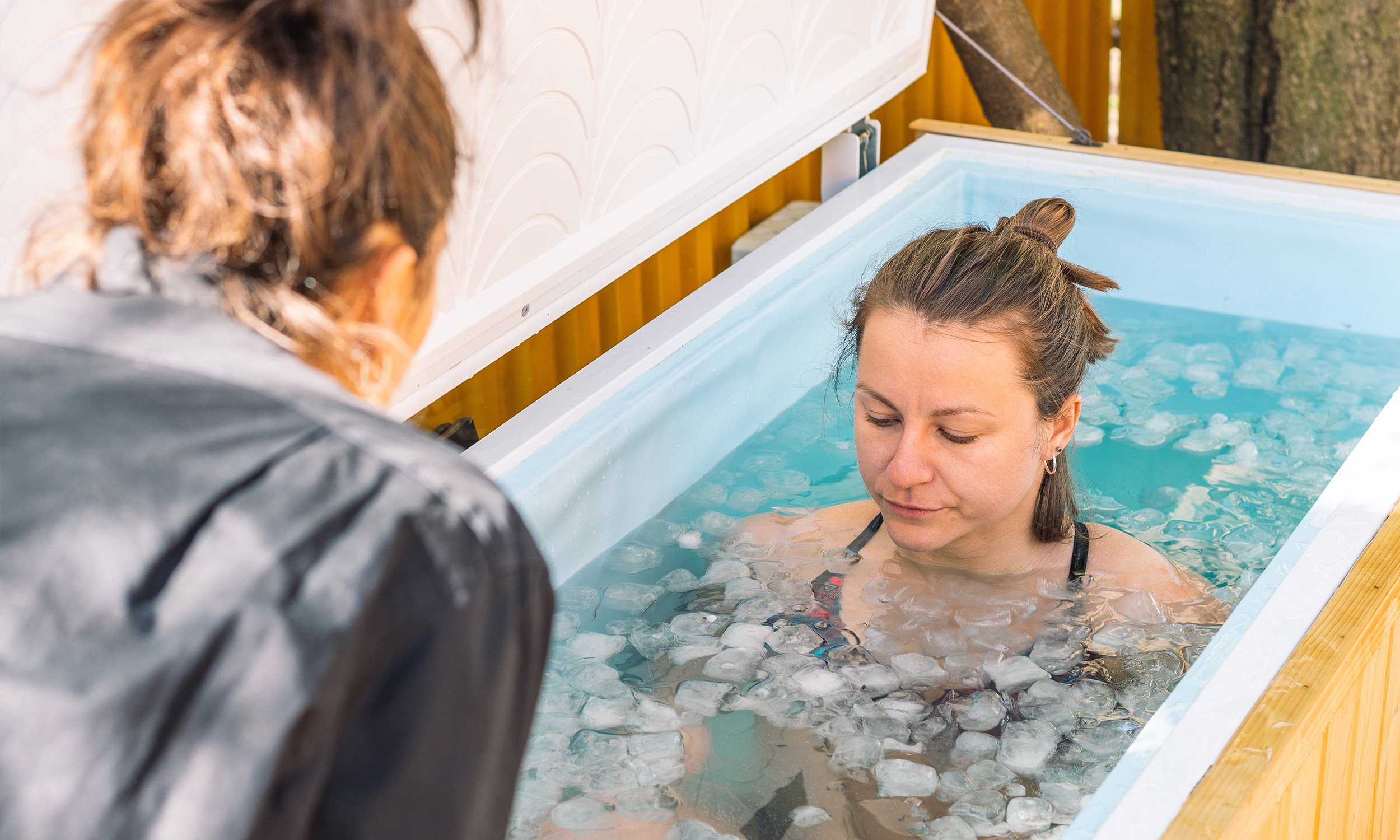
Cold Plunges
Cold plunges, or cold water immersion, have gained popularity for their potential health benefits. While there is no direct evidence that cold plunges cure or treat cancer, they may offer indirect benefits that could support the body during cancer treatment. Here's what research suggests:
Potential Ways Cold Plunges May Support the Body in Fighting Cancer
-
How It Helps: Cold exposure can stimulate the production of white blood cells and improve the activity of natural killer (NK) cells, which play a role in identifying and destroying abnormal cells, including cancer cells.
Evidence: Studies have shown that cold exposure may enhance immune system responsiveness by increasing the levels of certain cytokines and immune markers.
Note: The immune boost from cold plunges might be beneficial for general health but is not a substitute for cancer treatments.
-
How It Helps: Chronic inflammation is associated with cancer progression. Cold exposure is known to reduce inflammation by lowering pro-inflammatory cytokines like TNF-α and increasing anti-inflammatory molecules.
Evidence: A 2014 study in Medical Hypotheses suggested that cold water immersion might help regulate inflammatory processes in the body, which could be useful for cancer patients experiencing treatment-related inflammation.
-
How It Helps: Cold plunges cause blood vessels to constrict and then dilate, improving circulation. Better circulation ensures that tissues receive adequate oxygen and nutrients, supporting overall health and recovery.
Evidence: While no direct studies link this to cancer treatment, enhanced circulation can aid in detoxification and cell repair processes.
-
How It Helps: Cold plunges activate the body’s stress response, helping to improve resilience over time. This can help cancer patients manage the mental and emotional toll of their diagnosis and treatment.
Evidence: Cold exposure is known to activate the hypothalamic-pituitary-adrenal (HPA) axis and improve mood by increasing endorphins and norepinephrine, which might reduce stress and anxiety.
-
How It Helps: Cold plunges stimulate brown fat (BAT) activity, which burns calories to produce heat. This may help regulate body weight and metabolism, important factors in overall cancer health.
Evidence: Metabolic health is indirectly linked to cancer risk, and cold exposure might help maintain metabolic balance.
Cautions and Considerations
Consult Your Doctor: Cancer treatments, such as chemotherapy or radiation, can weaken the body. Cold plunges may cause additional stress on the system and might not be suitable for everyone.
Moderation is Key: Excessive cold exposure could lead to hypothermia or compromise the immune system instead of boosting it. Start with short plunges (30 seconds to 2 minutes) and gradually increase as tolerated.
Individual Variation: Not everyone responds the same way to cold exposure. Cancer patients with conditions like neuropathy or circulation issues should be particularly cautious.
Current Limitations in Research
While preliminary studies on cold exposure and its effects on immune function, inflammation, and stress are promising, direct evidence linking cold plunges to improved cancer outcomes is limited. Most research is in the early stages or based on animal models.
Conclusion:
Cold plunges may indirectly support cancer treatment by boosting the immune system, reducing inflammation, and improving mental resilience. However, they should not replace conventional cancer treatments like chemotherapy, radiation, or surgery. Always consult your healthcare provider before adding cold plunges to your routine, especially during cancer treatment.
References:
While direct evidence linking cold plunges to cancer treatment efficacy is limited, several reputable sources discuss the potential health benefits of cold water immersion that may indirectly support overall well-being:
Immune System Enhancement: A study published in PubMed observed that repeated cold water immersions might increase the plasma concentrations of certain immune cells, suggesting a potential boost in immune function.
PubMedInflammation Reduction: The Mayo Clinic Health System notes that cold water immersion may positively affect recovery after exercise by reducing inflammation and soreness.
Mayo Clinic Health SystemPain Relief: According to UCLA Health, cold therapy can alleviate pain by reducing inflammation and interfering with the brain's perception of pain.
Welcome to UCLA HealthMood and Cognitive Function Improvement: The Mayo Clinic Health System also mentions that cold plunges may help build resiliency, restore balance to the nervous system, and improve cognitive function and mood.
Mayo Clinic Health System
It's important to note that while these benefits are promising, they are not specific to cancer treatment. Individuals undergoing cancer therapy should consult with their healthcare providers before incorporating cold plunges into their routine to ensure safety and appropriateness.
Disclaimer:
The information provided on this website is for educational and informational purposes only and is not intended as medical advice. While we strive to provide accurate, up-to-date information on various cancer therapies, including both traditional and alternative options, this content should not be used as a substitute for professional medical consultation, diagnosis, or treatment.
We strongly recommend that users consult with qualified healthcare providers before making any healthcare decisions, including but not limited to: starting or stopping any new or existing cancer treatments. Every individual’s health situation is unique, and only a licensed medical professional can provide tailored guidance.
Our goal is to inform and empower, but we cannot guarantee the effectiveness or safety of any therapy discussed on this site. Reliance on any information provided by this website is solely at your own risk.
Some content on this website has been generated or assisted by artificial intelligence, and then has been internally reviewed. Any resemblance to copyrighted material is purely coincidental and unintentional. If you believe any content infringes on intellectual property rights, please contact us for resolution.

